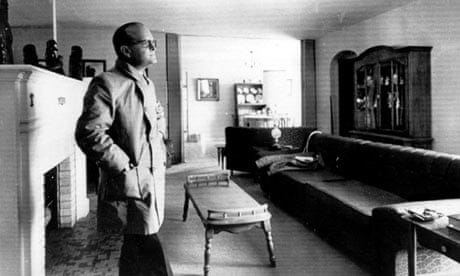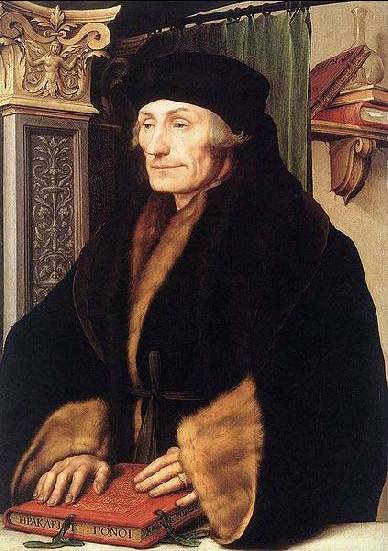The Jewel of Seven Stars
 Thursday, November 26, 2015 at 08:14
Thursday, November 26, 2015 at 08:14 There is little in the way of evidence that we understand what this ancient civilization truly accomplished. We have disinterred tombs, deciphered a hieratic language of obscure characters and darker gods, and mimicked the Egyptians’ customs and designs endlessly in an array of films and media (to the last any self-respecting horror fan will attest). Yet what we haven’t understood so dwarfs our discoveries that pensive minds tend to consider a rather terrible alternative: the Egyptians were so far ahead of their age as to remain uncanny forever. Canopic jars, thurification that has proven irreproducible, astronomy that may be more accurate than we care to imagine, mummifying techniques never seen before or since – never mind the everlasting monuments that have symbolized the country in our imagination. For a number of reasons the Egypt of today has little in common with its glorious past, but one thing from which it has not strayed is its ability to enchant and attract. One of the prototypes of Egypt’s mysteries can be found in this seminal novel.
Our hero and first-person narrator is Malcolm Ross, a nice name for a nice fellow. He is a single London barrister, quite professional and Victorian in the sense that he feels a deeply rooted repulsion towards the easy virtues that men in his position routinely enjoy. What he wants is a wife, a goddess he can place upon a pedestal and focus his awe upon until his ghost departs. We learn these facts quickly but as sidelights to another tale. A certain Margaret Trelawny, a young, retiring, raven-haired beauty, calls upon Ross to help her tend to her father Abel, who just happens to be a wealthy, world-famous Egyptologist and also just happens to have fallen into an unexplained hypnotic stupor. Ross comes racing in heart and leg only to find a wicked scene: the explorer is unconscious, bleeding from an odd scratch on a bangled wrist, his room of Egyptian antiquities sealed from within; he also lies at a strange angle to a safe whose contents shall remain unidentified for most of our story. A physician, a couple of incredulous policemen, and a band of snooping household staff all combine for a plain body of voices and visions – not one being of any particular interest – yet as a whole they provide a fine chorus for what is essentially a romance cast against a Gothic landscape. In the face of upped precautions the next night the event repeats itself (with the added bonus of a catatonic nurse), at which point Ross, a hopeless Romantic to begin with, now comes to consider that something otherworldly may be the catalyst. The policemen wish to instill in Ross the notion of empirical proof; the servants are aghast at the poltergeist-like attacks and quit in droves. But Ross is in love (detractors may carp that the novel devotes far too many pages to hand-holding and unrequited affection) and nothing on earth or beyond could drag him away from the object of his obsession. That is, until the appearance of a frantic polymath by the name of Corbeck.
A leather-faced collaborator of Margaret’s father just arrived from an operose three-year excursion on his partner’s dime, Corbeck’s degrees and level of learning are so extraordinary as to broach the inhuman. After some debate on the theft of a set of seven Pharaonic lamps that Corbeck insists are unique, Ross is handed a 17th-century Dutch travelogue on a tomb, a jewel, and a sinister mummy hand that guards that same jewel outside of its sarcophagus. The hand, you see, has seven fingers, and the jewel it protects contains the constellation of seven stars that appear to compose a sort of mandate from heaven. In time, we hear of a young and beautiful Queen Tera who inherits the throne as very much the envy of a theocratic cabal thirsting for power. We are regaled on stories of the Queen’s innovation and intelligence as our novel progresses, but that is not how the Dutch traveler van Huyn recalls an episode from his journey:
The fellaheen absolutely refused to enter the valley at such a time, alleging that they might be caught by the night before they could emerge from the other end. At first they would give no reason for their fear. They had hitherto gone anywhere I wished, and at any time, without demur. On being pressed, however, they said that the place was the Valley of the Sorcerer, where none might come in the night. On being asked to tell of the Sorcerer, they refused, saying there was no name, and that they knew nothing. On the next morning, however, when the sun was up and shining down the valley, their fears had somewhat passed away. Then they told me that a great Sorcerer in ancient days – ‘millions of millions of years’ was the term they used – a King or a Queen, they could not say which, was buried there. They could not give the name, persisting to the last that there was no name; and that anyone who should name it would waste away in life so that at death nothing of him would remain to be raised again in the Other World.
Ross reads on to find a fantastic sepulcher as well as the sorcerer in question – or at least, the curse that followed the desecrators and their loot. If you’ve seen a couple of mummy movies, the consequences of such greed will be quite clear to you. As will the oddly parallel lives of Margaret and the much-beleaguered seven-fingered Queen.
There are a few conclusions to draw about the novel that recommend themselves upon re-reading. We have the very distinct impression that our opening scene may not appear to be what it claims; we also comprehend that a human being who has willed herself seven digits cannot be holy. There is also the not nugatory matter of the novel’s two editions. The original, published to much vitriol in 1903, features an ending quite in keeping with the cataclysmic predictions of the forerunning chapters. It also contains a chapter omitted in the 1912 edition entitled “Powers – Old and New,” that holds forth elegantly and quite reasonably on the implications of the discovery at hand. While the ‘happy ending’ of the 1912 can at best be termed lamentable and at worst incoherent, the omission of the 1903 edition’s sixteenth chapter might be the more egregious sin. It is in this brief chapter that Ross, an introspective and overly sensitive young man, mulls history as a whole, its myths and its gods, the visions of artists who looked askance at the basic notions of divine power and glory:
The whole possibility of the Great Experiment to which we were now pledged was based on the reality of the existence of the Old Forces which seemed to be coming in contact with the New Civilization. That there were, and are, such cosmic forces we cannot doubt, and that the Intelligence, which is behind them, was and is. Were those primal and elemental forces controlled at any time by other than that Final Cause which Christendom holds as its very essence? If there were truth at all in the belief of Ancient Egypt then their Gods had real existence, real power, real force …. If then the Old Gods held their forces, wherein was the supremacy of the new? ….What was it that Milton saw with his blind eyes in the rays of poetic light falling between him and Heaven? Whence came that stupendous vision of the Evangelist which has for eighteen centuries held spellbound the intelligence of Christendom?
This is the precise reasoning of a Christian, but also of any monotheist gazing at the dynasties that allegedly yielded only one ruler who wished to believe in a single universal force. There is, anyway, something more than a little off-putting about gods with the heads of hyenas or birds. Not that you'd ever know that from all their modern acolytes.





